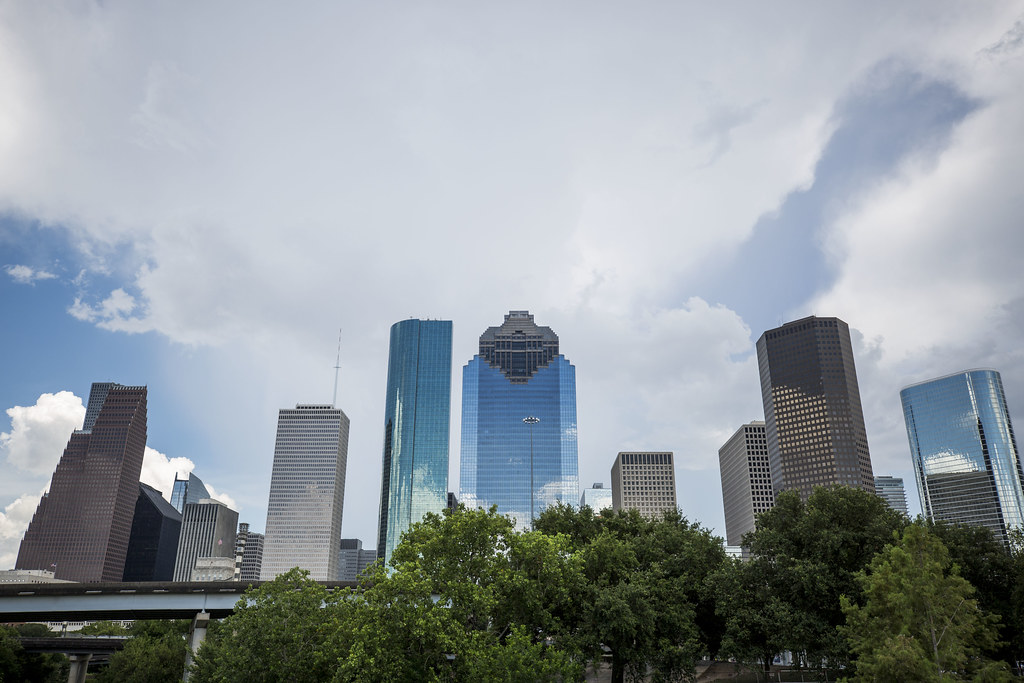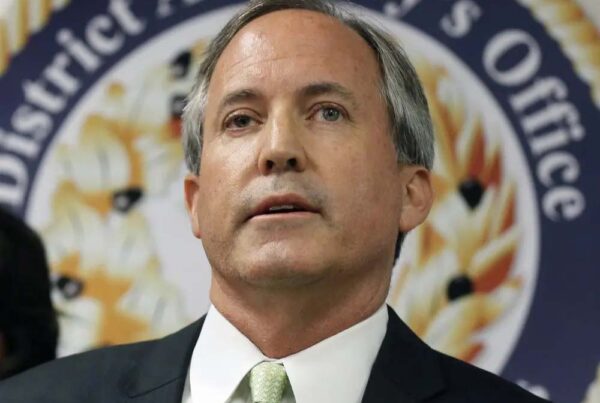Houston, Texas’ largest city, is facing a budget shortfall, expected to have a gap of $160 million in the upcoming fiscal year. Mayor John Whitmire said last month that “Houston is broke” and proposed 5% budget cuts for all city departments, except for police and fire.
The city’s budget is broken and its approach is a disaster, according to Chuck Marohn, founder and president of the urban planning think tank Strong Towns. He joined the Texas Standard to explain the economics behind this situation. Listen to the interview above or read transcript below.
This transcript has been edited lightly for clarity:
Texas Standard: So let’s just cut right to it. Why is Houston going broke? And what exactly do we mean by going broke in this context?
Chuck Marohn: I think there’s two different parts of this. Broke does not mean they’re filing bankruptcy; it means they’re short on cash. And I think the proper question is to say, why are they short on cash?
If you listen to them and if you listen to, quite frankly, a lot of people around the country who talk about local government, they’ll say things like they need to raise taxes or they need to cut services or what have you.
If we look at Houston as an example – and I think this is something that relates to really every city in North America, but Houston is the North American growth pattern on steroids, right; it is kind of the poster child of horizontal expansion – Houston has just outgrown itself.
It has built more roads, more pipes, more sidewalks, more infrastructure, more drainage areas, more parks than its tax base has the capacity to sustain. And that shows up in these repeated budget shortfalls, these repeated budget crises, this kind of tightening of fiscal conditions.
The things that Houston has done to generate growth and prosperity has actually made it insolvent. And that is the core problem they’re dealing with. It’s a functional insolvency.
Is that why you focus on Houston, because you say it’s the poster child of this kind of growth? Because you say it’s not the only city in the country, far from it, that’s in a financial situation like this.
No, I wrote a piece on Houston because Houston is such a high-profile kind of avatar for a certain style of growth. When you think Houston, you think low government regulation, you think hyper growth, like we’re all in on the next thing.
I actually wrote a follow-up piece about Santa Clara, California, which is a Silicon Valley city – which I think would be considered, especially in our political dialogue today, kind of the anti-Houston. Like more regulation, kind of the opposite approach.
The reality is that in Santa Clara they have the exact same problem, and they have the exact same problem for the exact same reason. They’ve grown and grown and grown post-World War II, very horizontal. When you spread things out over a big area, you drive up your costs long term as a local government, while in a sense denuding your tax base.
So even though Santa Clara is very wealthy – I mean, it’s extremely wealthy; double the household income of the typical American city, double the home value of a typical American city – even though you have that wealth, even though in Houston you have lots and lots of growth, in neither scenario do you end up with a government that can actually pay for the things that taxpayers want it to pay for.
» GET MORE NEWS FROM AROUND THE STATE: Sign up for Texas Standard’s weekly newsletters
So if using long-term debt to cover short-term expenses isn’t sustainable, what should local leaders do to promote financial resilience?
I think we could go back and we could second-guess a lot of things. There’s a lot of things that I think we would do differently today. I think today, we have to, in a sense, work with the cities we have. We don’t get a do-over; we don’t get a mulligan.
So if the question is, what do we do today? I think it’s pretty clear that we need to, first of all, stop horizontally expanding. If you have too much stuff than you can maintain, building more stuff is a really bad trade-off, even if it gives you a little bit of cash today.
We need to actually talk about how do we make better use of the stuff we’ve already built. How do we get more return out of that mile of road? How do we get more connections in that mile of pipe? How do we essentially have our cities thicken up and mature to have a greater level of financial productivity, a greater level of return? And that’s just a different building model.
I mean, that is a model that focuses more on taking the single-family home and converting into a duplex, adding a backyard cottage, narrowing up streets, making it more walkable, adding corner stores, building real neighborhoods.
These are things that a lot of people are calling for for different reasons – sometimes environmental reasons, sometimes social reasons; we have a housing issue. But really, financially, cities cannot continue to grow the way they have. They have to do something different. And that different looks a lot like building traditional kind of neighborhoods.
So for Houston in its position where it’s at now, it’s contracting a little bit; it’s saying, “we’re going to reduce spending.” But your prescription would be, going forward, it’s what you’re choosing to build or spend on next.
Well, part of the dialogue in Houston, and it’s the same dialogue in Santa Clara, is to create kind of a short-term fiscal emergency to, in a sense, justify – and I’m saying this; this is going to sound very cynical. I think this is just a standard pattern we see repeated over and over – to justify taking on more debt.
Taxpayers are generally reluctant to support a lot of debt. We do it, but we kind of understand the trade-off: Like, we’re having it easy today; people tomorrow are going to have to pay for that. I think that doesn’t sit well with most people. So in order to kind of take on debt, you have to create this emergency.
You have to kind of make things look: “Boy, this is really bad; this is really dire. Here’s the way out of it: We’re going to borrow $1 billion. We’re going to borrow over 20 years. We’re going to pay it back in this long period of time, and then we can finance this emergency situation.”
I think that if Houston wanted to make a responsible choice today, they actually would not do that. They would actually not fix this problem by covering it up with debt. They would actually address it today by switching policies. We need a new approach to building, we need a new approach to street construction, we need a new approach to street reconstruction.
The city should not annex any more property. It is should not be building any more new streets, any more new pipes. These are things we can do right now to start to get our fiscal house in order. And that will be a little painful, but it’s the responsible thing to do.














